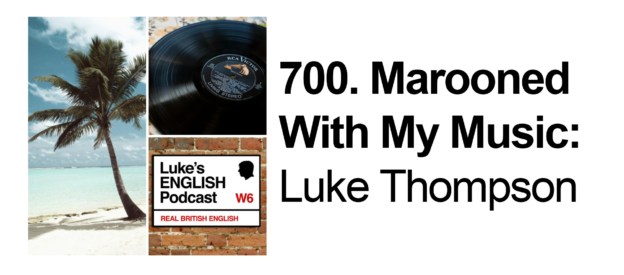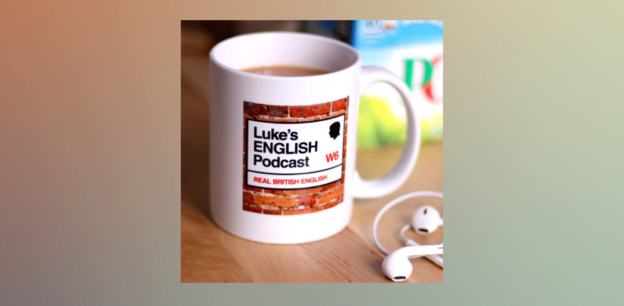Describing how I am setting up my new pod-room with a couple of stories and plenty of vocabulary for talking about DIY and doing improvements to your home. Vocabulary list available.
Episode Notes & Transcript
Hello listeners, welcome to LEP#757. In this one I am going to talk to you about how I am setting up my new podcasting room (is it an office, is it a studio?) and I’m going to teach you some vocabulary related to doing practical work with your hands at home.
Just before we start I just want to say hello properly to everyone in LEPland and deal with a little bit of podcast admin.
Hello
I hope you’re doing well. It’s been over 2 weeks since I published the last episode because of the house move (I moved house a few weeks ago). If you’re wondering how that’s going – I’ll talk about it a bit in this episode, but let’s just say that the phrase my wife and I have been using over and over is “it’s coming along” which means we are making progress, bit by bit, slowly but surely – unpacking our stuff from boxes, setting up the new place, getting things sorted out such as an internet connection at home and the important appliances like a cooker, a washing machine etc. Things are getting slightly less chaotic every day. Also I was ill for week (not COVID thankfully) which didn’t help. Anyway, if you’ve been waiting patiently for a new episode – thanks for waiting. If you’ve been waiting impatiently, I’ll still say thanks for waiting. Things are still up in the air so I can’t get back into the usual podcasting routine yet, which means there might be another delay after I publish this episode, but when I have my new podcast room set up and have done lots of other things that need doing, normal podcasting will resume. Hopefully this slowdown has allowed a lot of you to catch up with me.
3 of announcements and bits of admin before we start properly:
- Premium subscribers – I am currently working (when I can) on P33 parts 3 & 4 which are turning into quite substantial episodes. Part 3 is all about word families, parts of speech and word stress patterns. That means how word stress patterns can change from the noun form of a word to the adjective, verb and adverb forms etc. (Politics – politician – political – politically, Economics – economist – economic – economically, architecture – architect – architectural – architecturally, etc) Part 4 will be pronunciation drills with full sentences, not just words on their own. So that’s coming soon to LEP Premium. If you want to sign up to LEP Premium to get all those episodes – go to teacherluke.co.uk/premiuminfo to get all the info. If you ever have problems with the registration process – try using other browsers, and not on a mobile phone.
- Spotify listeners – hello! Recently loads of my episodes disappeared on Spotify. I don’t know if you noticed but episodes 1-664 just disappeared. Well, they should be back now or soon. It was just an automatic update which changed some settings, but those settings have now been reset. So everything should be normal, the episodes should be available again and you should be able to listen on Spotify as usual. In any case you can always get all the episodes in the LEP App which you can download free from the app store on your phone (just search for Luke’s English Podcast App). That’s the whole episode archive, plus about 10 bonus episodes which are only available in the app, all the mini phrasal verb episodes, some music and videos and access to the premium content too if you have a subscription.
- OPP – If you’re looking for other things to listen to while waiting for new episodes of LEP at the moment, you could check out my appearances on several other podcasts. Recently several of my podcast friends reached milestone episodes and they both chose to invite me as a guest as a way of marking the occasion. Apparently I am the pod-father. First of all, Rock n’ Roll English hosted by Martin Johnston – he reached episode 250 recently and invited me on to have a chat about the ins and outs of making podcasts for learners of English and it’s a typically funny and unfiltered conversation. That’s episode 250 of Rock n’ Roll English. Also Zdenek’s English Podcast reached episode 400 recently and Zdenek invited me as a guest. I love the way Zdenek and Martin decided to pay their dues to the podfather in this way! I had an epic chat with Zdenek about loads of things including how his podcast has been inspired by mine in some ways and about the development of him as a teacher and podcaster. I think it’s a good conversation with insights about various things including what it’s like making podcast content and how confidence develops, the creative process and generally another inside look into podcasting for learners of English. Check them out – you will find links on the page for this episode. 2 other episodes of other people’s podcasts you could check out.
This is an episode about DIY – or Do It Yourself
This is not an episode about how you can teach yourself English, although I could talk about that a bit, later in the episode.
DIY is a common expression in English, meaning Do It Yourself and it relates to doing practical work at home.
People talk about doing DIY. We say things like “I’m going to do some DIY this weekend” “I’ve been doing some DIY”, “I did a bit of DIY at the weekend”, “I’m no good at doing DIY” “My husband does all the DIY in our house” “My wife tends to handle all the DIY because I’m rubbish at it, etc etc”.
DIY (Do It Yourself) means all the practical work that you might do at home from time to time – the things we do in order to make improvements to our home. I’m talking about things like putting up shelves, painting & decorating, fixing things and other similar work that you do to improve your own home without having to call someone in to do it for you, like a plumber, carpenter, decorator or electrician. You don’t call someone in to do it, you do it yourself. DIY.
It’s the sort of thing you might do at the weekend. Putting up shelves seems to be the most common example of DIY as far as I can tell. Putting up shelves – that thing that seems so simple on paper, but in reality is the sort of thing that can bring a person to their knees – and I don’t mean kneeling down in order to do some work, but to kneel down in a desperate plea to the gods of (what – wood? Screwdrivers?) in order to beg for mercy because your attempt to put up the shelves is proving to be too difficult a task. What do you mean, Luke? I mean, doing DIY, for example, putting up shelves can be a nightmare if you don’t know what you’re doing.
As I said, on paper it doesn’t seem that bad, but to do it right you have to do it properly. You have to read up on how to put up shelves, maybe watch some tutorials online, then plan a specific time to do it, go to the hardware shop or DIY shop to get all the right materials and tools. You put on some old clothes, maybe prepare an area of the home where you’re going to do your work and make sure no pets or children go anywhere near it, you get the stepladder out, and then you try and actually put some shelves on the wall, or build something or whatever, and if you’re not very good at it, if you’re not a practical person, it can be stressful and you end up making a total mess of it, and you hit your thumb with a hammer and then you start swearing and maybe break something and fall off the ladder, and have an argument with your spouse or something and then just give up and go to the pub or something. It depends how handy you are, how practical you are or not. For many of you, this isn’t a problem and the idea of putting up shelves being diffiult is laughable to you. I don’t know your life.
But I do know, that DIY is a very common thing in life and surely this is something that unites all of us to some degree. Either because we all have to do DIY sometimes, or at least we know someone who has to do DIY and it’s just a thing that happens in our lives. Do you know all the English that you need to talk about DIY? The tools, the verbs, the specific phrases for all of it? That’s what I’m dealing with here.
The reason I’m doing this episode right now might be obvious for those of you who are regular listeners. I have just moved into a new flat and also I’m setting up a new office/studio for myself and this is involving a lot of this kind of work.
In fact, this is what is taking up most of my time at the moment, which is why the podcast has been a bit delayed recently. When I’m not teaching English classes at the British Council or spending time with my wife and daughter doing family things, I’m working on the flat and working the office.
What I’m going to do in this episode, then, is:
- Describe exactly what I’ve been doing in the office and talk about how I’m trying to set it up as a good base for my podcast work. I’m going to describe the DIY I’ve been doing.
- Go through a vocabulary list of various words and phrases for talking about the fascinating subject of DIY.
Setting Up The Pod-Room
- What is it?
- Where is it?
- What does it look like?
- What does it need to be?
- What are you doing with it?
Tell us about the shelves you put up, in as much detail as possible.
Vocabulary – DIY
Putting up shelves
- Tape measure – to measure things (length, depth, width, height, distance from x to y etc)
- Spirit level – to check that things are level (horizontally or vertically)
- Pencil – to mark lines or crosses/spots
- A drill – to drill holes (into thing)
- A cordless drill
- Battery / battery pack – charge it regularly
- Drill bits (different bits for different materials) – to drill holes of the right size / to drill (into)
- Types of material – masonry (stone and brick), wood panels (MDF, chipboard, wood (pine, oak etc)
- Wall plugs / Rawlplugs – to hold screws in place and prevent damage to the walls (you push them into the holes and then when you screw in the screw, the plug expands inside the hole and grips the inside of the hole, preventing the screw from falling out) they ensure a tight and secure fit for screws in material which is brittle or porous.
- Screws – screw them into the wall or into wood to attach things
- Nails – hammer them into the wall or wood to attach things
- Screwdriver – to screw in screws, or unscrew screws
- Electric screwdriver / power screwdriver – a convenient way to screw screws
- Hammer – to hammer nails or pull nails out of walls
- Mallet / rubber mallet – to hammer other things, without causing damage. You can use a mallet to hammer rawl plugs into the holes, for example.
- Pliers – to hold things firmly, to grip things
- A saw – to saw wood (handsaw, hacksaw, etc)
- Sandpaper – to sand things and make them smooth or take off rough edges – like wood, dried filler or rough patches of paint
- A plane – to remove layers of wood
- File – to rub against wood (usually) and change the shape, remove layers (e.g. if a door sticks and doesn’t close properly)
- Rags – to wipe things, clean things, dust things (remove dust)
- Dustpan and brush – to clean up dust and other bits and pieces
- A multi-tool – a convenient thing to help you do lots of things, including cut your arm off if it gets trapped under a rock in the desert
Painting
- Paint – to cover surfaces, to coat surfaces, to add colour, to make things look nice
- Layers of paint or coat:
- Primer – to prepare the wood by covering dark colours or patches, prevents things from leaking through (like some oil or sap which comes from knots in the wood) and makes the surface smooth (MDF is absorbent so the primer helps to stop the MDF from absorbing all your paint – it also causes wood fibres to stand up, so you can then sand them down) etc
- Sealer – seals the wood and creates a watertight layer
- Undercoat
- Topcoat
- Types of paint, with different appearances:
- Matt (flat surface, low “sheen”, not reflective, harder to wash, prone to marks and scuffs, easy to add other coats without showing up brush strokes)
- Eggshell / satin (higher level of “sheen” than matt, easier to wipe than matt, more durable than matt)
- Gloss (highly reflective, has a very high “sheen” level, sometimes used in kitchens because it can be wiped clean and is therefore a bit more hygienic)
- Oil-based paint
- Water-based paint
- A brush – to apply paint to things
- A roller – to apply paint evenly and conveniently to large surfaces
- A tin/tub of paint – the containers the paint comes in
- Masking tape – to cover parts which you don’t want to paint, like skirting boards, windows, handles etc
- Plastic sheets – to cover and protect the floor from drops of paint
That’s it!










